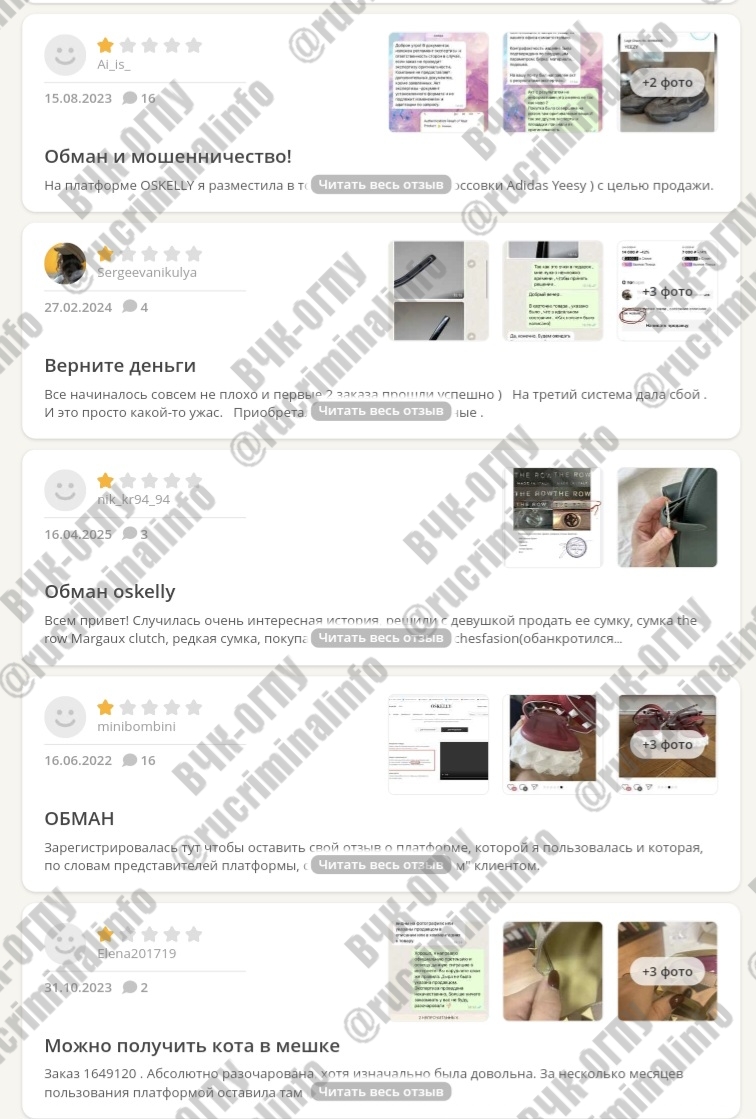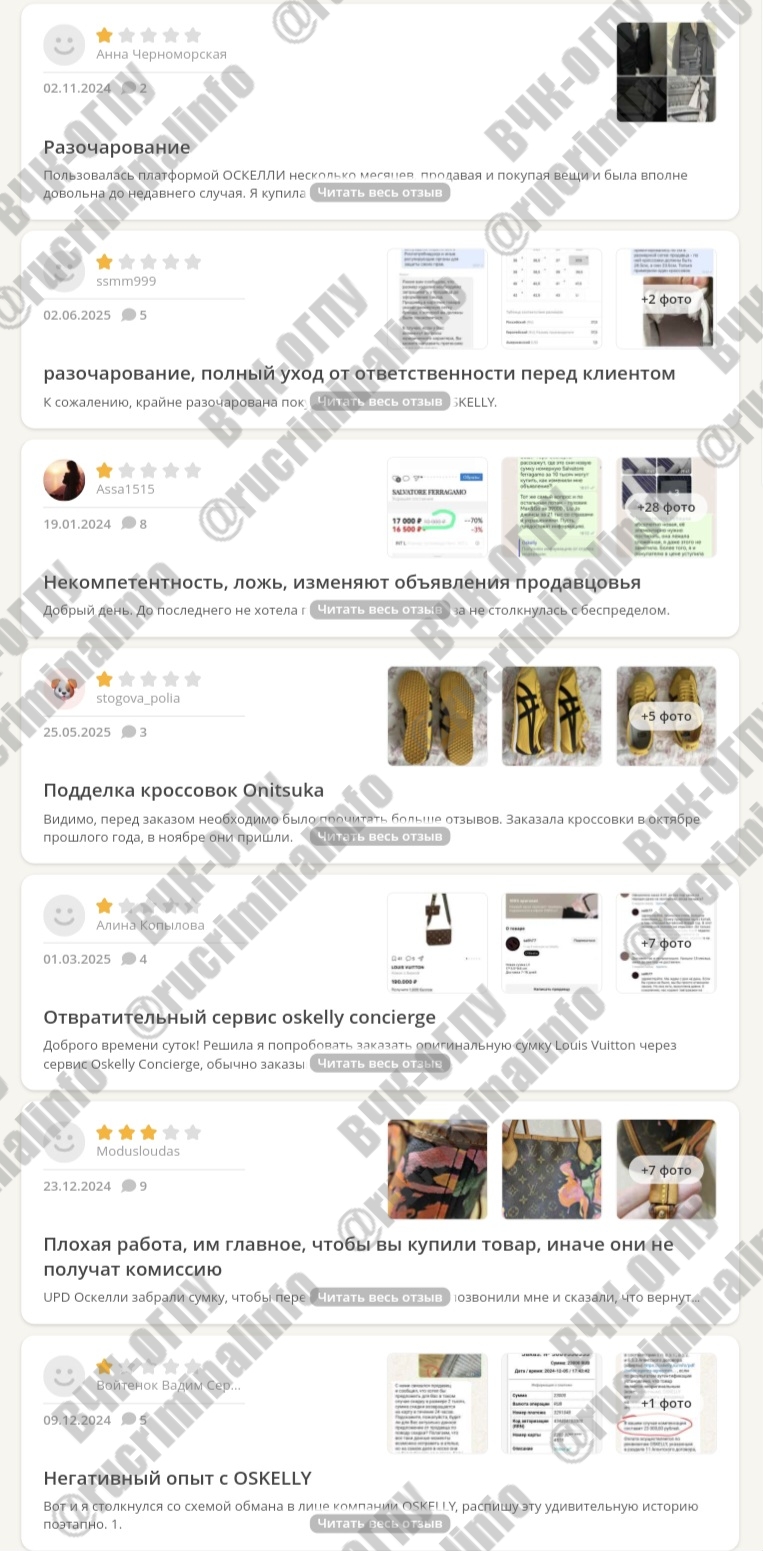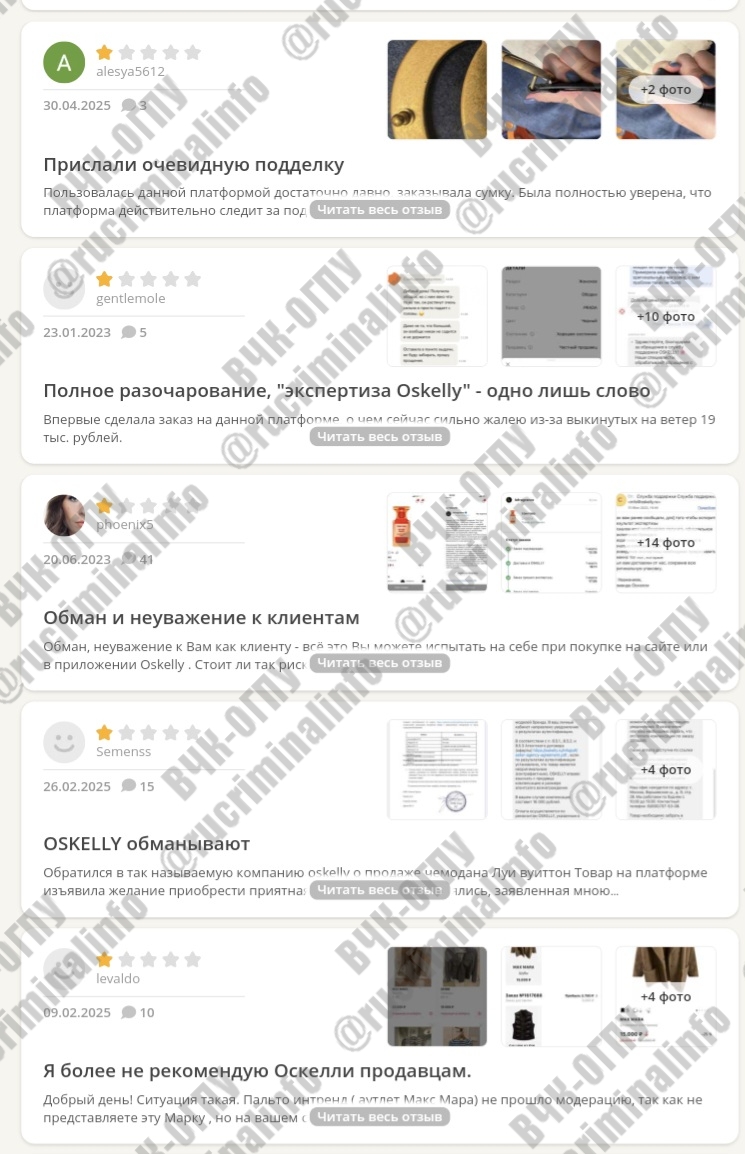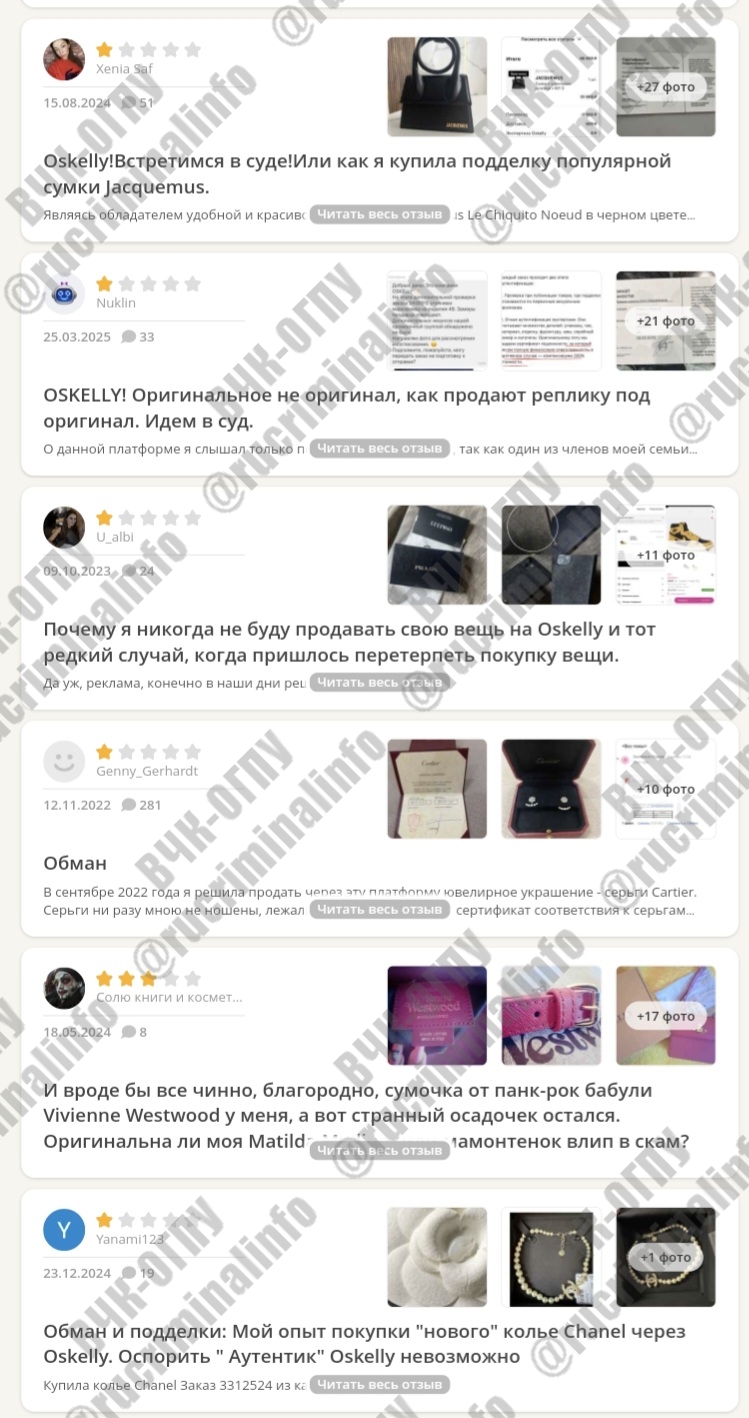Source: www.rucriminal.info
At first glance, this is a beautiful luxury marketplace. A stylishly designed website, brands, supposedly expertise, premium aesthetics and trust built on visual appearance. But behind this facade is a verified system in which the roles of the seller, expert and judge are performed by the same structure. This is not a business in the classical sense. As the VChK-OGPU Telegram channel and Rucriminal.info found out, this is a scheme built on the legal vulnerability of the buyer and the platform's complete monopoly on the truth. This is not a platform where goods are independently verified. This is a closed ecosystem where Oskelly controls everything - from listing the lot to recognizing it as authentic, and no external mechanism can interfere with this.
The platform is managed by Oskelly Group LLC. The founders are brother and sister: Albert Oskanov and Zaira Keligova. They have a total of 92% of the shares. Another 8% is owned by the third accomplice. This is a typical family structure without external audit, where all key decisions on experts, sales, complaints, returns and blocking are made within one team. In 2023, the company's turnover exceeded 1.24 billion rubles, but the profit was only 25 million. At the same time, the staff grew from a modest 6 to 185 people. Such indicators are not typical of a stable business model, but of the transfer of funds within the system - either through fictitious contracts or through cashing out. These figures do not coincide with the image of "luxury" that the platform broadcasts. Luxury, as we know, does not work at a loss. But the most dangerous thing is hidden not in the numbers, but in the essence of Oskelly's expertise. The user agreement (offer) that you sign states: the expert's opinion is not subject to appeal unless you provide an official document from the brand. But it is almost impossible to obtain such a document in Russia: brands do not provide opinions to third-party individuals. This means that you immediately agree that any opinion of the “expert” is final. Moreover, the examination is not carried out by a certified company, not a bureau, not a government agency, but by the same people who manage the platform. These are Oskelly employees. No diplomas, registers, independent procedures or responsibility to the consumer. They do not have access to forensic examination, no accreditation, but they have the full right to “decide” whether the original is in front of them or not - and on this basis, deprive you of both the goods and the opportunity to return the sold fake. Judicial practice confirms this. The cases published on the portal mos-gorsud.ru and kad.arbitr.ru recorded numerous lawsuits against Oskelly, which dealt with the sale of goods that in reality turned out to be fakes - and this was confirmed not just by the words of buyers, but by independent experts, hardware authentication, opinions from third-party specialists. Buyers provided video recordings, Entrupy scan results, and expert opinions using international standards for assessing originality. However, all of this was ignored because the buyers initially signed an offer under which Oskelly had the exclusive right to the final verdict. The essence of the scheme is simple: the product is recognized as original not because it has passed international certification, but because Oskelly employees wrote about it in a document. No licenses, no public database of experts, no accreditation. You don’t know who is conducting the inspection, what kind of approval they have. Everything is based on trust, and legally, on the offer, which states: the expert’s decision cannot be appealed unless an official response from the brand is provided. But brands — Hermès, Chanel, Dior — do not provide such documents to individuals. This means that it is impossible to challenge the result in principle, even if you bring a fake to a boutique and they tell you outright that it is not their product. This is exactly what happened in dozens of cases: buyers received the goods, conducted an independent inspection, received a hardware report on non-compliance - including the results of Entrupy and the conclusions of specialized experts - and, faced with Oskelly's refusal to acknowledge the fact of counterfeiting, were forced to go to court. But in most cases, the platform refers to a pre-signed offer, which states that the result of its internal examination is final, and a challenge is possible only with an official letter from the brand - a document that is impossible for an individual to obtain in Russia. Even when the goods objectively do not correspond to the original, the declared legal structure of Oskelly blocks the buyer's access to a real dialogue. And although some of these cases are currently in the process of judicial review, the entire burden of proof, expenses and nervous pressure falls on the shoulders of the client. People spend time, money, resources trying to prove what would be obvious from the first request in any normal consumer protection system. It is this model - when the internal opinion of the platform is higher than objective facts confirmed by technology and external experts - and makes Oskelly not a marketplace, but a closed scheme. This is a system in which the role of the court is played by the one who sells. And the buyer only has to “agree” - even before he receives the goods. This is how Oskelly works - not as an open marketplace, but as a closed system in which the seller, expert and arbitrator are one and the same person. There is no right to dispute, no right to an alternative opinion, not even the right to a platform mistake. Everything is built in such a way that you agree with everything in advance. You are not sold a thing, but the right to hear “this is an original” - and everything that happens after can no longer be disputed. Independent examination? Not recognized. Hardware authentication? Invalid. Your evidence, documents, videos, receipts are just empty applications if they do not come from a brand that is not obliged to confirm anything to you in the Russian Federation. The entire protection model is aimed not at the buyer, but at the platform itself. You are not buying Chanel - you are buying someone else's opinion. And the moment you click the “I agree with the offer” button, you exclude yourself from any possible dialogue.




There are dozens, if not hundreds of testimonies of victims on the Internet. People tell how they received fakes, could not return things, how they lost money, faced fines, blocking, complete ignoring. On IRecommend, Otzovik, VC.ru, Zoon, TripAdvisor - many real stories written by ordinary buyers who believed in the visibility of the platform. Some of them went to court. These stories are repeated as if under a carbon copy. These are not exceptions - this is the result of a built system. And as if this were not enough, behind this scheme there is another layer - a financial one. According to official Rusprofile data, with revenues of over 1.2 billion rubles, Oskelly's net profit for the year was only 25 million. At the same time, the company does not have the official status of a trading platform, is registered as an IT company, uses a simplified tax system and has sharply increased its staff from 6 to 185. These are classic signs of a structure that works not only as a legal trap, but also as a possible cashing channel: large sums pass through the system, settle inside, get lost in fictitious expenses - and all this without transparency, without control, without external reporting. On the surface, it's a fashionable website with logos. In fact, it's an internal scheme, where every step is thought out in such a way as to protect the system, not the client.
Yaroslav Mukhtarov
To be continued
Source: www.rucriminal.info






